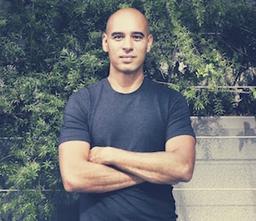- Resentment toward a loved one or coworker
- Guilty about what you haven’t done
- Overwhelmed by all that you need to do
- Anxious about the uncertainty of the world
- Stuck in your old habits
- Avoidant of your difficult tasks
- Bored or lonely
How Story Shapes Our Lives
For example, what kind of reaction would you have if someone asked you, “Would you like some of this salad I’m making?”- If you see this as a generous act of kindness and this person is contributing to your healthy life, then you might feel grateful.
- If this question is seen as a part of a narrative of hundreds of times this person has criticized your weight or diet, then you might feel hurt or annoyed.
- Or maybe you have a narrative that salad is terrible, and you might feel disappointed it’s not a hamburger and fries.
Every day, our lives are shaped by the story we have of ourselves, of others, and of the reality around us. We have feelings about politics, world crises, our community, social media, our work, an upcoming meeting, a conversation we had this morning, or how good we’ve been at keeping up with new habits.
If you miss a day of meditation or exercise, depending on your story about yourself, you might feel that this is no big deal and just start again the next day, or you might feel that you’re terrible at this and you’ll never get it right and your life is meaningless. Very different reactions and results from the same act, and it’s all dependent on story.
I invite you to reflect: What results are you getting in your life right now, and how are they shaped by your stories? What is your relationship with others in your life like right now, including yourself, and how is that shaped by your stories? What is your relationship to food, exercise, meditation, self-care, rest, work, and play, and how are those relationships shaped by your stories?
Once we can become aware of our stories and how they shape our lives, through the kind of reflection I’m inviting you to do right now, then we can start to reshape things through new stories.
How to Use Story as a Change Tool
You can completely change how you feel, change the results you’re getting, and change your relationship to anything, by changing your story.You definitely don’t have to change anything if you don’t want to. If you want to keep resenting someone, want to keep feeling guilty or powerless or overwhelmed, you can keep your usual story and there is no problem.
But if you’d like to change, consider using story as a tool for that change.
- Identify the feeling, result, or way of relating to something that you’d like to change. Examples: I eat a lot of junk food; I’m constantly frustrated by people; I can’t stop looking at social media.
- See if you can identify the story that’s responsible for that. Examples: Junk food comforts me when I’m stressed; people shouldn’t act that way; I need social media apps on my phone to stay connected.
- Identify a new result, feeling or way of relating to something that you’d like instead. Examples: I want to eat more vegetables and to love healthy food; I want to see the good in people and be more accepting; I want to read books whenever I would normally look at social media.
- Draft a new story that will help you get that. Examples: Veggies and fruit nourish my body and make me feel amazing; there’s a loving heart behind every person’s actions; when I have downtime, I treat myself to reading a good book.
- Remind yourself to tell yourself this new story every time it would help. This takes a lot of practice, so also create the story that you don’t need to be perfect at this, but that you’ll be persistent because you care deeply about this.
- Every moment is sacred and has something to teach me.
- I look for the light in each person.
- I need only simple, nourishing foods.
- I can be with any fear or emotion.
- I am deeply committed to the results I want to create.
- Movement and the outdoors light me up.
- I care for my life by tending to finances, my health, and messages to people I care about.
- I savor stillness and quiet.






